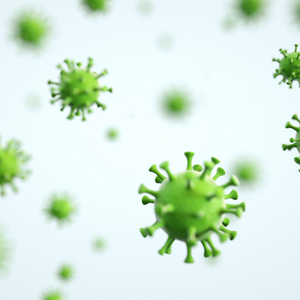Esophageal Candidiasis

Esophageal candidiasis is a fungal (candida or yeast) infection that affects the esophagus, the tube that carries food from the mouth to the stomach. This yeast also causes other infections in other parts of the body such as skin, mouth or vagina.
Esophageal candidiasis is more common in people with weakened immune systems, such as those with HIV/AIDS or cancer, as well as in people who are taking certain medications that weaken the immune system. It can occur with a normal immune system as well.
Symptoms
- Painful and difficult swallowing.
- Chest pain.
- Nausea alone or with vomiting.
- Weight loss.
In some cases, there may be no symptoms at all.
Treatment
Treatment for esophageal candidiasis may include antifungal medications taken by mouth or given intravenously. This prevents the fungus from spreading and works to eliminate it from the body.
The medication can come in a variety of forms, such as tablets, lozenges, or a liquid that you can swish in your mouth like mouthwash and then swallow.
FAQs
Esophageal candidiasis is a fungal infection of the esophagus, the tube that connects the mouth to the stomach. It is caused by the overgrowth of the yeast Candida, which is normally found elsewhere in the gastrointestinal tract.
Symptoms of esophageal candidiasis include pain with swallowing (dysphagia), and chest pain. Other symptoms include coughing, hoarseness, and weight loss.
People who are at risk for esophageal candidiasis include those with weakened immune systems, such as people with HIV/AIDS, cancer, or diabetes. People taking antibiotics or inhaled corticosteroids, as well as those who have had previous esophageal infections, are also at risk. Even people with normal immunity can sometimes get esophageal candidiasis.
Esophageal candidiasis is typically diagnosed by endoscopy. A sample of the affected tissue may be taken and examined under a microscope to confirm the presence of Candida.
Treatment for esophageal candidiasis typically involves antifungal medication, which can be taken orally or given through a vein (intravenously).
Esophageal candidiasis can be prevented in those at risk, such as by keeping the immune cell numbers at an appropriate level in HIV, rinsing the mouth and swallowing water after using inhalers.
No, esophageal candidiasis is not contagious and cannot be spread from person to person through direct contact.
Esophageal candidiasis can recur in some individuals, particularly those with weakened immune systems or who are at risk for other infections. To reduce the risk of recurrence, it is important to follow the treatment plan as prescribed by a healthcare provider and to make any recommended lifestyle changes.